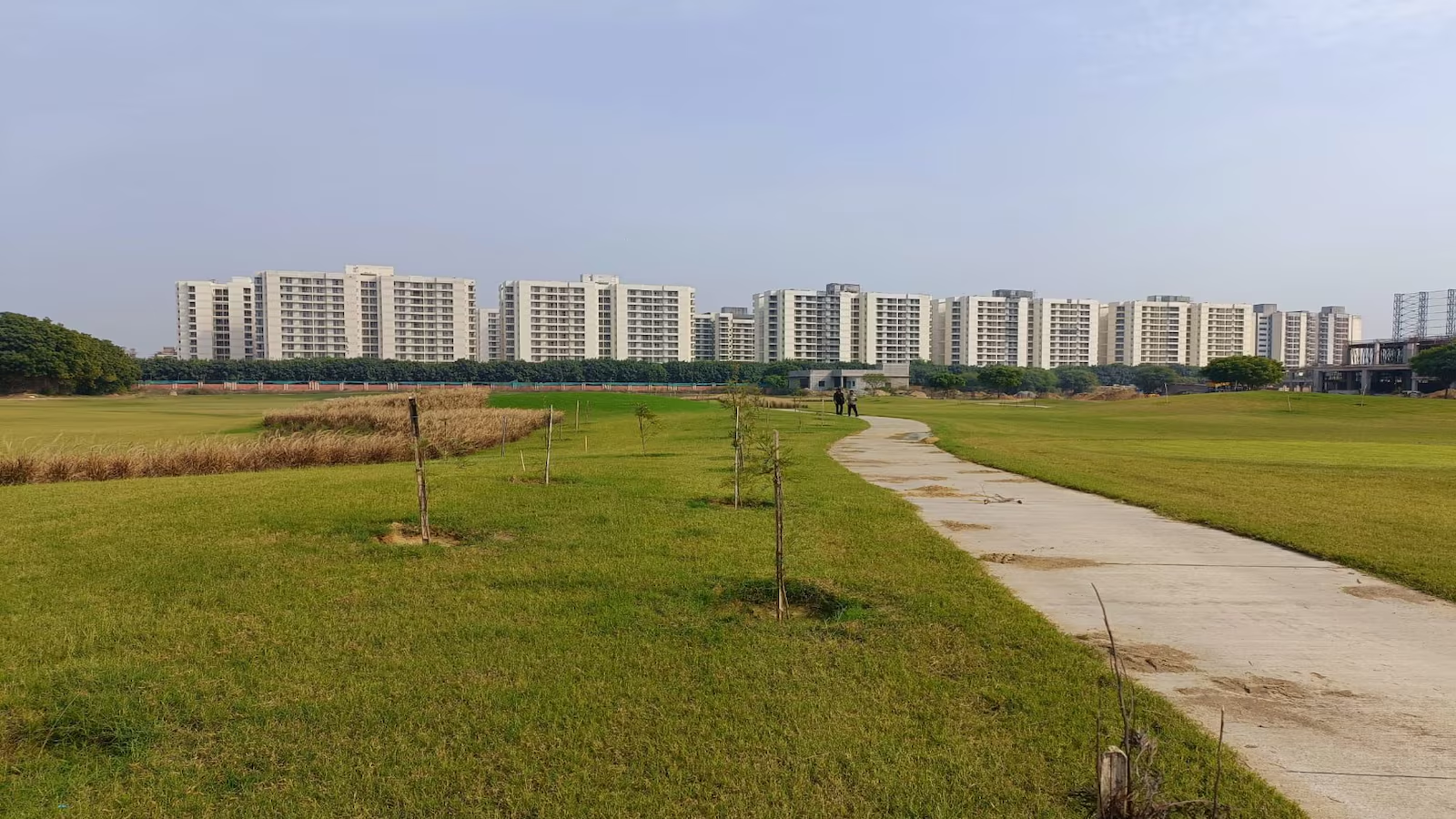Bytes
ASSERTIONS OF AUTHORITY




Not just Supertech, recently, realty giant DLF has been charged with a Rs. 630-crore penalty for not informing buyers about the changes in its construction plans. Parsvnath Developers was asked pay the entire principal amount paid by two flat buyers with 18 percent interest and another Rs. 7 lakh compensation to each for causing mental agony and harassment because of the delay in handing over possession of the flats.
The Supertech controversy has indeed shaken and stirred the authorities. The authorities of Noida and Greater Noida, the Yamuna Expressway Industrial Development Authority (YEIDA), Ghaziabad Development Authority (GDA), the Delhi Development Authority (DDA) and even the National Buildings Construction Corporation (N BCC) have now given indications of their abiding intent to stand up for the flat buyers.
Says Rama Raman, chairmen, Noida and Greater Noida authorities: “The most important challenge that developers face now is in bank finance. Earlier, they got the money easily to run the project. Now, they are not getting it and finance has become tough for them.Developers also overstretched their capacity. Because of their financial crunch, many of their projects got delayed. Due to this reason, the allotees who had booked the flat suffer the most. In such cases, there must be stringent steps taken against the developers so that the allotees’ interest will be safeguarded. “
To improve the situation, both the government and other statutory bodies need to monitor properly. “It is very important to regulate and monitor the property advisory businesses. Today, anyone can become a property dealer to advice on property or become a developer. There should be government recognised institutions to give certification for starting a property advisory business. The govern ment and other authorities will have to see how this can be streamlined and organised. Industary too hastobe actively involved in this. Moreover, industry bodies like CREDAL and NAREDO need to act on this,” said Anoop kumar Mittal Chairman and managing director, NBCC.
At the same time, it has been observed that nowadays consumers are very much aware of their own rights and move either to the courts or consumer redressal forums if they find any discrepancy at any stage of the execution of their agreement with buyers. But is the authority the right platform for the buyers/consumers to deal in such situations, instead of going to court or any similar forum?
“It would be good if a mechanism is devised wherein the authority is involved and it plays the role of an arbitrator. In that case, if the buyer is not satisfied by the authority’s decision then he shall go to the court. So an arbitration clause should be there in the agreement between the builder and the buyer. This will also save buyers’ time and money, “says Raman.
It has been observed that now consumers are very much aware of their rights and move either to the courts or consumer redressal forums if they find any discrepancy at any stage of their agreement with buyers
“The authority is not proactive now. But it should be proactive and remedial steps should be taken immediately when issues come to the authority’s notice. Moreover, close monitoring of every project is needed. For example, in the Parsvnath case, it got delayed by over four years. We need to take remedial steps immediately when the allotees sense such situation, even if there is possibility of six months delay, “adds Raman.
Keeping the relationship between developers and the authority in mind, DDA has a peculiar situation to deal with. For instance, there is a case pending in the Competition Commission of India as there is a conflict of interest with DDA donning the roles both of a regulator and a developer.
“Keeping this broad picture in my mind, we are now revising our policies. We are revisiting all our policies, where we feel there is a conflict of interest. Also, we want to ensure that there is no monopoly on part of DDA, and if needed we will definitely change the policy,” says Balvinder Kumar, vice-chairman, DDA.
SK Yadav, vice-chairman of GDA, has a different view as far as the Supertech or the Parasvnath case is concerned. “There is no doubt that they need to go to the authority. When the authority approves the map, it should be abided with as per the condition therein. If violated, the authority does not have the right to penalise the wrong-doing developers, but it can definitely give them a notice,” he says.
“Regarding the size of the flat, if the developers violate the rule, then the consumer can come and complain to the authority,” Yadav adds.
With transparency being the need of the hour, the authorities, in particular, should be more proactive than ever before on every complaint they receive from the public. If they are not receptive towards the public, the realty sector may face severe problems from the public at large, and also from media as well as the judiciary
“On judicial activism, I think people have become more aware now about their rights, because more and more people are now going to courts. Now the realty sector will have to be more transparent and receptive towards the need of the people,” says DD.As Kumar.
In a bid to attract more buyers, DDA has proposed buyerndly policies to boost the sector. “For example, if somebody deposits money with the DDA, we give only 8 per cenfinterest. But when we charge delayed payment we take 1 percent . Thus, we would like to address all such anomalies,” adds Kumar.
SUPERTECH CASE
The Allahabad High Court ordered the demolition of Towers 16 and 17 on Plot 4 of Emerald Court at Sector 93A in Noida “within a period of four months” for breach of the Noida Building Regulations and Directions, 20 1 0 and the Uttar Pradesh Apartment Act, 201 0. One thing is obvious, despite the Allahabad High Court’s order in the Supertech case; the local authorities seemingly have not been really effective in protecting the rights of the home buyers. On the other hand, developers are all too tight-lipped on such issues. The court verdict has brought forth a new set of checks that a buyer should carry out
DLF case
An appellate tribunal has upheld a ruling to impose Rs630 crore penalty on India’s largest real estate company, DLF, for not informing buyers about changes in its construction plans. The company had gone ahead and built an additional 200 flats in Gurgaon’s DLF Belaire project.
Parsvnath case
The National Consumer Disputes Redressal Forum has asked realty major Parsvnath Developers to return the entire principal amount paid by two flat buyers with 18% interest and another R7 lakh compensation to each for causing mental over possesion.


RAMA RAMAN,Chairman, Noida & Greater Noida Authorities
The noida and greater noida Authorities have suggested few steps to address the buyers’ concern on any property transaction. The authority says that there should be a forum in the local authority where problem of the projects with the developers associations can be discussed on a weekly or monthly basis.


ANOOP KUMAR MITTAL, CMD, N BCC


SK YADAV, VC, GDA


BALVINDER KUMAR, VC, DDA
ASPIRING FOR A REALTY REGULATOR
It has been widely observed that India’s real estate industry is becoming notorious day by day due to the lack of transparency. Buyers often find themselves forced to own defective properties or paying for things they don’t need at all. To tackle such problems faced by the buyers/investors, the government is planning to set up a regulator.
On a separate watchdog for the sector, government babus are of the view that setting a regulator for the real estate sector is a welcome step and it is very much desirable for the industry due to the large number of complaints and grievances of the public are pending at various levels.
“Setting up of a regulator will definitely check the monopoly in the sector. This will lead to reasonable terms and conditions in the builder-buyer agreement. Presently, what is happening is that builders are having the upper hand where there is short supply, and buyers are having the same where there is excess supply. So, market forces will ultimately determine the terms and conditions in this regard,” says PC Gupta, CEO, YEIDA.
However, Mittal of NBCC has justified it on a different note by saying that government undertaking bodies do not run after money, rather their job is to oversee a consistent business growth in a transparent manner.
“What we have been saying again and again is that there is a basic difference between the public and private sectors. The private sector wants to make money and make it multiply, where as we are bound to follow all the norms and cannot deviate, even if we want to do so, as our system doesn’t permit it,” says Mittal.
“Making profit is not our motive and we cannot go after that. And this is the reason why we think we will be successful in our real estate business,” he adds.
On the other hand, the Noida and Greater Noida Authorities have suggested a few steps to address the buyers’ concern on any property transaction. The authority says that there should be a forum in the local authority where problem of the projects with the developers associations can be discussed on a weekly or monthly basis.
“The authority should listen to their grievances in order to speed up their project so that such kind of delays will never happen again. The forum discussion should be tripartite – developers, buyers and authority, so that the concerns of both buyers and developers can be sorted out on time,” says Raman•


PC GUPTA, CEO, YEIDA
-



 News3 weeks ago
News3 weeks agoKW Delhi 6 Mall Onboards New Brands
-



 News4 weeks ago
News4 weeks agoManasum Senior Living Launches IKIGAI GOA, A Senior Living Community in North Goa, in collaboration with Prescon Homes
-



 News2 weeks ago
News2 weeks agoGodrej Properties Sells Rs 3k cr+ Homes of Godrej Zenith, Gurugram, within 3 days
-



 News4 weeks ago
News4 weeks agoBridging India Divide: Top 5 Tier- 2 Cities to Focus On
-



 News3 weeks ago
News3 weeks agoCommercial Realty Gets Tech Savvy: Fast Construction, Enhanced Convenience
-



 News4 weeks ago
News4 weeks agoMultipoint Connection – A Definite Boon
-



 News3 weeks ago
News3 weeks agoRBI’s Status Quo on Key Policy Rates to Help Maintain the Real Estate Growth Momentum, Say Industry Stalwarts
-



 News1 week ago
News1 week agoOlive Announces Dhruv Kalro as Co-Founder























